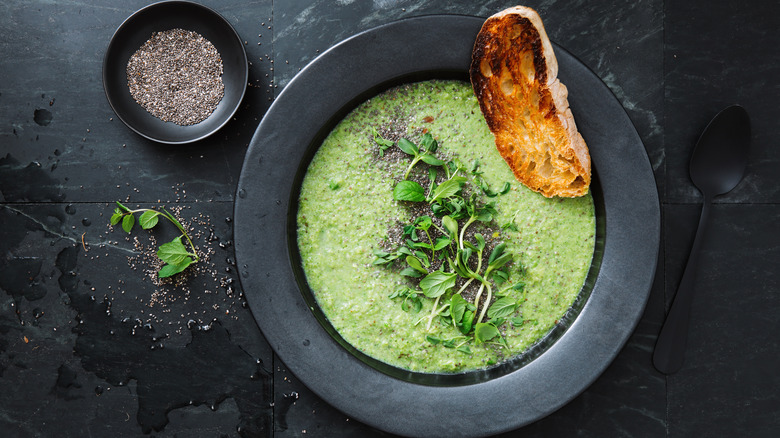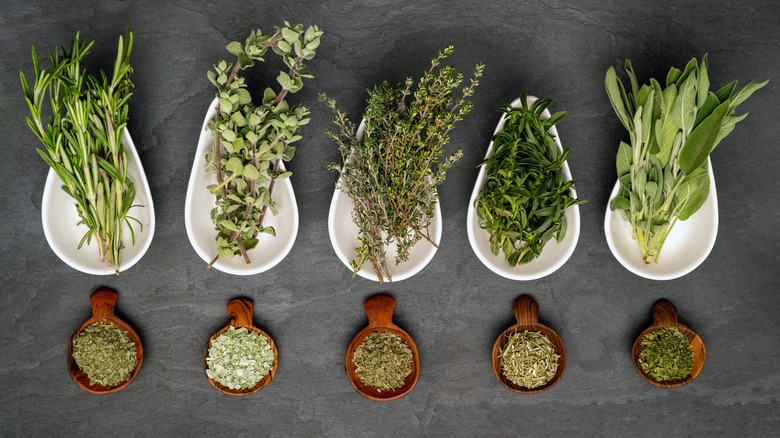When To Add Fresh Herbs To Your Soups
Adding a smattering of fresh herbs to a hearty soup is a great way to bring some brightness and lightness to a bowl. To preserve the integrity of these fragile ingredients, however, you have to be specific about when you them to the pot. As a general rule of thumb, you should always add fresh herbs to soup at the end of the cooking process.
Fresh herbs are delicate, and it doesn't take much to strip them of their flavor. Adding them into a soup too early will suck all the fine flavors and aromatics right out of the herbs. There might be no flavor left at all in the end, or only unsavory bitter notes hidden deep inside of the plant.
The fact is, some fresh herbs just don't hold well against high heat, which is why you should add them at the very end or save them to use as a garnish. So, whether you're adding fresh parsley to a basic, all-purpose tomato sauce or basil to a roasted butternut squash soup recipe, save that final touch of green for the end. If you're serving a cold soup like gazpacho, you might be able to add fresh herbs earlier in the process, as cold temperatures don't shock fragile herbs like hot broths do.
When to opt for dried herbs instead
If patience just isn't in your nature, don't make fresh herbs pay for it. With dried herbs on hand, you can add your rosemary and sage much earlier on in the cooking process, as these herbs can benefit from simmering in a pot longer to fully release their flavors. It's super easy to dry your own herbs at home too, so why not?
There are a few different benefits to choosing dried herbs over fresh as well. Sturdy dried herbs like rosemary and thyme taste just the same as fresh ones (if not more potent), only without their moisture. So, you don't always have to forgo flavor to make this switch. But when it comes to more fragile options like dill or mint, you might want to stick to fresh for more punch.
Moreover, while fresh herbs tend to go bad within a week, dried herbs can stay in your pantry for months or even years and retain all their goodness. If you open the jar and can still smell the spice, it's good; if not, it's time for the herb to hit the bin. Because fresh herbs go bad quicker, they're also higher-priced, as it takes more labor to keep those perishable goods fresh. So, if you're on a budget, opting for dried instead of fresh is the way. But if you want a burst of color and flavor in a dull beef stew, why not use both? Just be sure to add dried herbs earlier on in your soup, and fresh ones towards the end.

